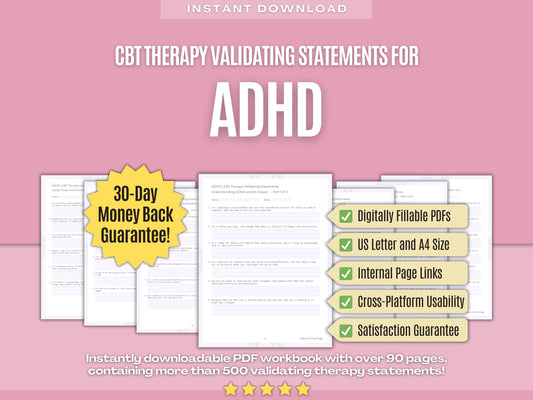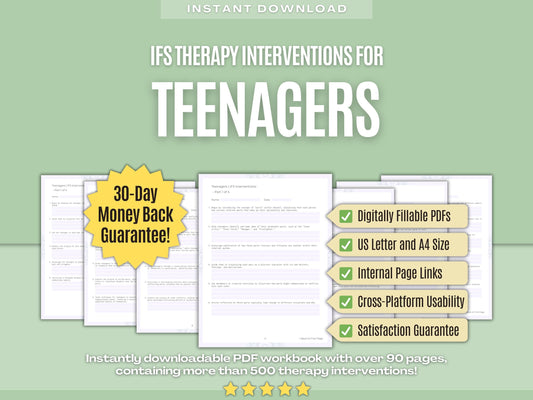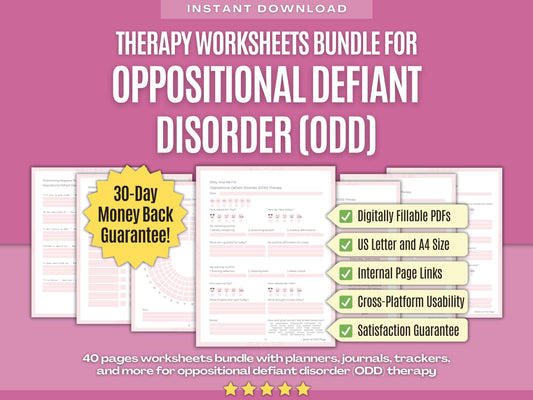Elevate Your Therapy and Guide Your Clients to Inner Healing with Our Grief and Loss Therapy Progress Notes! ✨
1. Therapy Introduction
- Today's session focused on introducing the client to the concept of grief therapy and establishing a foundation for our work together.
- Explained the therapist's role and clarified the therapeutic process, including confidentiality and boundaries.
- Explored the client's current symptoms and how they are impacting their daily functioning.
- Addressed the client's cultural or spiritual beliefs related to grief and mourning.
- Provided psychoeducation about the grieving process and common symptoms associated with grief.
- Collaboratively set goals for therapy based on the client's needs and preferences.
- Explored the client's support system and identified sources of social support outside of therapy.
- Addressed any questions or concerns the client had about the therapy process.
- Discussed the client's strengths and resilience, highlighting their capacity for growth and healing.
- Reviewed informed consent and ensured the client understood their rights as a therapy participant.
- Encouraged the client to express any hesitations or reservations they may have about therapy.
Need more? Find all 500+ Therapy Progress Notes for Grief and Loss Therapy in our Digital Workbook!
2. Understanding Grief and Loss
- Today's session centered on deepening the client's understanding of grief and loss.
- Explored the unique aspects of the client's loss and how it has impacted various areas of their life.
- Identified any patterns or themes in the client's grieving process.
- Provided psychoeducation about the stages of grief and common reactions associated with each stage.
- Explored the concept of grief triggers and identified specific triggers the client may have experienced.
- Validated the client's emotions and experiences, affirming the normalcy of their grief reactions.
- Introduced the concept of secondary losses and how they can compound the client's grief experience.
- Explored the client's coping mechanisms and identified which strategies have been most helpful for them.
- Discussed the importance of self-compassion and self-care during the grieving process.
- Addressed any existential or spiritual concerns the client may have related to grief and loss.
- Explored the client's experiences with social support and identified ways to enhance their support network.
Need more? Find all 500+ Therapy Progress Notes for Grief and Loss Therapy in our Digital Workbook!
3. Mindfulness for Mourning
- Today's session focused on introducing mindfulness techniques as a tool for coping with grief and mourning.
- Introduced the concept of mindfulness and its potential benefits for managing grief-related distress.
- Conducted a brief mindfulness exercise to help the client cultivate awareness of their thoughts, emotions, and bodily sensations.
- Addressed any misconceptions or concerns the client may have about practicing mindfulness.
- Discussed how mindfulness can help the client develop a more compassionate and accepting attitude toward their grief.
- Introduced different mindfulness techniques such as mindful breathing, body scans, and loving-kindness meditation.
- Discussed the importance of integrating mindfulness into daily life activities to enhance coping with grief.
- Addressed any resistance the client may have to incorporating mindfulness into their grief work.
- Provided guidance on how to use mindfulness to navigate difficult emotions that arise during the grieving process.
- Discussed how mindfulness can help the client cultivate gratitude and appreciation for moments of joy amidst sorrow.
- Offered resources such as guided mindfulness recordings or smartphone apps to support the client's mindfulness practice outside of sessions.
Need more? Find all 500+ Therapy Progress Notes for Grief and Loss Therapy in our Digital Workbook!
4. Dialectical Behavior Therapy (DBT) for Emotional Regulation
- Today's session focused on introducing dialectical behavior therapy (DBT) techniques to help the client regulate their emotions in the context of grief.
- Introduced the concept of dialectics and the balance between acceptance and change in DBT.
- Addressed any avoidance behaviors or maladaptive coping strategies the client may be using to manage their emotions.
- Explored the client's understanding of the function and purpose of their emotions in the grieving process.
- Conducted a mindfulness exercise to help the client observe their emotions without judgment.
- Introduced distress tolerance skills to help the client cope with intense emotions without resorting to harmful behaviors.
- Provided guidance on how to use crisis survival strategies such as distraction, self-soothing, and improving the moment.
- Addressed any fears or concerns the client may have about experiencing intense emotions without resorting to harmful behaviors.
- Addressed any emotional triggers the client may have identified and discussed strategies for coping with them effectively.
- Introduced cognitive restructuring techniques to help the client challenge and reframe unhelpful thoughts that contribute to emotional distress.
- Offered resources such as emotion regulation worksheets or self-help books to support the client's use of DBT skills outside of sessions.
Need more? Find all 500+ Therapy Progress Notes for Grief and Loss Therapy in our Digital Workbook!
5. Interpersonal Therapy (IPT) for Social Support
- Today's session focused on identifying the client's social support network and assessing the quality and availability of support from friends, family, and other significant individuals.
- We discussed the client's communication patterns within their relationships, exploring barriers to expressing needs and emotions related to their grief.
- Today, the client explored their expectations and desires regarding support from others, identifying areas where they may need to communicate their needs more effectively.
- The client reflected on their role within their social support network, considering how they both give and receive support from others.
- The client identified potential sources of strain or conflict within their social support network and expressed a desire to address these issues constructively.
- The client reflected on cultural or societal norms regarding grief and support, considering how these norms may influence their interactions with others.
- We discussed the client's coping strategies for managing social isolation or loneliness, exploring ways to increase connection and engagement with others.
- Today's session focused on enhancing the client's assertiveness skills, empowering them to communicate their needs and boundaries within their social relationships.
- We discussed the concept of role transitions within social relationships, exploring how changes in roles and responsibilities may impact the client's support network.
- Today, the client explored the potential impact of secondary losses on their social support network, recognizing how changes in relationships or roles may affect their support system.
- The client identified opportunities for increasing social activities and engagement as a means of strengthening their support network and enhancing their well-being.
Need more? Find all 500+ Therapy Progress Notes for Grief and Loss Therapy in our Digital Workbook!
6. Emotion-Focused Therapy (EFT) for Emotional Healing
- Today's session focused on creating a safe and supportive space for the client to explore and express their emotions surrounding their grief experience, utilizing principles of Emotion-Focused Therapy (EFT) for emotional healing.
- We discussed the client's emotional needs and how unmet needs may contribute to their experience of grief, emphasizing the importance of validating and honoring their emotions.
- Today, the therapist facilitated an exploration of the client's emotional triggers and vulnerabilities, helping the client to identify patterns of emotional activation and regulation.
- The client engaged in emotion-focused techniques, such as guided imagery, expressive arts, or chair work, to deepen their emotional awareness and facilitate emotional processing.
- The therapist supported the client in expressing and releasing pent-up emotions, providing validation and empathy as the client navigated through their emotional pain.
- The client explored the function and purpose of their emotions in the context of their grief, recognizing that emotions serve as important signals and guides in the healing process.
- We discussed the concept of emotional expression as a form of catharsis and release, allowing the client to unload emotional burdens and experience a sense of relief and liberation.
- Today's session focused on exploring the client's attachment-related emotions, such as longing, yearning, or abandonment, in the context of their grief and loss experience.
- We discussed the concept of emotional regulation and coping strategies, helping the client to develop healthier ways of managing and processing their emotions.
- Today, the therapist facilitated an exploration of the client's emotional goals and aspirations for their grief journey, helping the client to envision a future characterized by emotional well-being and resilience.
- The client engaged in exercises aimed at enhancing emotional awareness and expression, such as journaling, emotion tracking, or body-centered techniques.
Need more? Find all 500+ Therapy Progress Notes for Grief and Loss Therapy in our Digital Workbook!
7. Psychodynamic Exploration of Loss
- Today's session delved into psychodynamic exploration of loss, aiming to uncover unconscious processes, conflicts, and defenses that may influence the client's grief experience.
- We discussed the concept of loss as a trigger for unresolved emotions and conflicts from the client's past, acknowledging how these unresolved issues may resurface in the context of grief.
- Today's session focused on exploring the client's defense mechanisms against the pain of loss, such as denial, repression, or intellectualization, uncovering how these defenses may hinder the mourning process.
- We discussed the role of transference and countertransference dynamics in the client-therapist relationship, recognizing how these dynamics may illuminate unconscious patterns related to loss.
- Today, the therapist facilitated an exploration of the client's dreams and unconscious fantasies related to their loss, providing insights into unconscious processes and unresolved conflicts.
- The client explored their unconscious identification with the deceased, recognizing how they may internalize aspects of the deceased's personality or life narrative as a means of coping with loss.
- We discussed the concept of mourning as a form of symbolic reparation, with the grieving individual engaging in internal processes of restitution and reconciliation with the deceased.
- Today, the therapist facilitated an exploration of the client's unconscious wishes for reunion or restitution with the deceased, acknowledging the pull of the past and the longing for resolution.
- The client explored their unconscious guilt or shame surrounding the loss, recognizing how these feelings may manifest as symptoms of depression or self-destructive behavior.
- We discussed the concept of mourning as a form of existential confrontation with mortality, with the loss of a loved one serving as a reminder of one's own mortality and finitude.
- Today, the therapist facilitated an exploration of the client's unconscious wishes for restitution or resolution in response to the loss, acknowledging the complexity of grief and the need for integration.
Need more? Find all 500+ Therapy Progress Notes for Grief and Loss Therapy in our Digital Workbook!
8. Healing through Music Therapy
- The client engaged positively with the music therapy session today, showing enthusiasm and curiosity about exploring various musical elements.
- The client expressed a preference for instrumental music, finding it easier to connect with their emotions without lyrics.
- The client identified a particular piece of music that resonated with their experience of loss, leading to a deep emotional release during the session.
- The client shared memories associated with specific songs, highlighting the importance of music in their grieving process.
- The client showed signs of catharsis during the session, releasing pent-up emotions and experiencing a sense of relief afterward.
- The client expressed gratitude for the opportunity to express themselves creatively through music, finding it therapeutic and empowering.
- The client demonstrated improved mood and increased emotional resilience throughout the session, indicating progress in their grief journey.
- The client identified recurring patterns in their grief responses through musical improvisation, gaining insight into their emotional triggers.
- The client expressed interest in exploring music therapy further as part of their ongoing healing process, recognizing its profound impact on their emotional well-being.
- The client reflected on their progress since beginning music therapy, noting increased emotional awareness and a greater sense of resilience.
- The client articulated a newfound sense of hope and purpose, inspired by the transformative power of music in their healing process.
Need more? Find all 500+ Therapy Progress Notes for Grief and Loss Therapy in our Digital Workbook!
9. Concluding Grief Therapy
- The client attended their final session of grief therapy today, marking a significant milestone in their healing journey.
- The client expressed gratitude for the support and guidance they received throughout the therapy process, noting the positive impact it has had on their life.
- The client shared insights into their grief journey, highlighting moments of growth, resilience, and self-discovery that occurred during therapy.
- The client expressed a sense of readiness to transition out of therapy, feeling equipped with coping strategies and emotional tools to navigate future challenges.
- The client reflected on the impact of grief therapy on their relationships with others, noting improvements in communication, empathy, and connection.
- The client expressed a sense of closure and acceptance regarding their loss, recognizing that while the pain may never fully disappear, they have developed resilience and coping mechanisms to navigate it.
- The client articulated a sense of empowerment gained through therapy, feeling more confident in their ability to face future challenges and transitions.
- The client expressed a desire to honor their loved one's memory through meaningful rituals or acts of remembrance, finding solace in keeping their legacy alive.
- The client expressed appreciation for the therapeutic relationship and safe space created during sessions, noting the value of having a compassionate listener to accompany them on their journey.
- The client shared their hopes and aspirations for the future, expressing optimism about the possibilities that lie ahead.
- The client expressed a sense of closure and readiness to say goodbye to therapy, feeling grateful for the transformative experience it has been.
Need more? Find all 500+ Therapy Progress Notes for Grief and Loss Therapy in our Digital Workbook!
10. Pathways to Healing
- The client engaged in a deep exploration of their grief journey during today's session, demonstrating a willingness to confront difficult emotions and experiences.
- The client expressed a desire to understand the various pathways to healing from grief, recognizing that there is no one-size-fits-all approach.
- The client shared insights into their unique grieving style and coping mechanisms, gaining a deeper understanding of how they respond to loss.
- The client expressed a desire to explore different therapeutic modalities and coping strategies to support their healing journey.
- The client identified supportive resources and community networks that resonate with their values and beliefs, finding solace in shared experiences and mutual support.
- The client expressed a desire to engage in creative expression as a means of processing their emotions and finding catharsis in their grief.
- The client shared their experiences with grief triggers and discussed strategies for managing them effectively, such as mindfulness, grounding techniques, and self-compassion.
- The client articulated a sense of purpose and meaning in their grief journey, recognizing opportunities for self-discovery, growth, and connection with others.
- The client expressed a desire to cultivate gratitude and resilience as they navigate their grief journey, recognizing the value of finding moments of joy and connection amidst sorrow.
- The client reflected on their relationships with others in the context of grief, exploring ways to communicate their needs and boundaries effectively and seek support when needed.
- The client expressed a sense of empowerment and agency in their grief journey, recognizing their ability to make choices that support their healing and well-being.
We hope that our therapy progress notes for Grief and Loss therapy will help you to elevate your therapy practice and guide your clients to inner healing! Do you need more therapy progress notes for Grief and Loss therapy? Find them all in our Digital Workbook! Or do you have any questions or suggestions for us? Please feel free to contact us at any time!


















